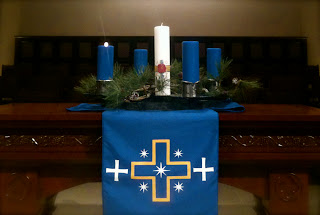READ: Luke 1:1-4; 24:13-49
Luke 24:13 Now on that same day two of them were going to a village called Emmaus, about seven miles from Jerusalem, 14 and talking with each other about all these things that had happened. 15 While they were talking and discussing, Jesus himself came near and went with them, 16 but their eyes were kept from recognizing him. 17 And he said to them, “What are you discussing with each other while you walk along?” They stood still, looking sad. 18 Then one of them, whose name was Cleopas, answered him, “Are you the only stranger in Jerusalem who does not know the things that have taken place there in these days?” 19 He asked them, “What things?” They replied, “The things about Jesus of Nazareth, who was a prophet mighty in deed and word before God and all the people, 20 and how our chief priests and leaders handed him over to be condemned to death and crucified him. 21 But we had hoped that he was the one to redeem Israel. Yes, and besides all this, it is now the third day since these things took place. 22 Moreover, some women of our group astounded us. They were at the tomb early this morning, 23 and when they did not find his body there, they came back and told us that they had indeed seen a vision of angels who said that he was alive. 24 Some of those who were with us went to the tomb and found it just as the women had said; but they did not see him.” 25 Then he said to them, “Oh, how foolish you are, and how slow of heart to believe all that the prophets have declared! 26 Was it not necessary that the Messiah should suffer these things and then enter into his glory?” 27 Then beginning with Moses and all the prophets, he interpreted to them the things about himself in all the scriptures.
REFLECTION QUESTIONS
- How many hours of preparation does it take a person to prepare for success?
- How did Jesus prepare his disciples for their mission?
- What was the essential core of his message to the disciples ?
- Could you easily summarize Jesus' message for your next door neighbor?
- What is the mission of the church? Whose mission is it?
- Name the power that Jesus promised for our mission.
- John Stott's book, The Living Church, speaks of his dream of a living church which is a biblical church. Why is the Bible important for the mission? Could you summarize the message and the mission of the church out of the bible? Check out Luke 24.








